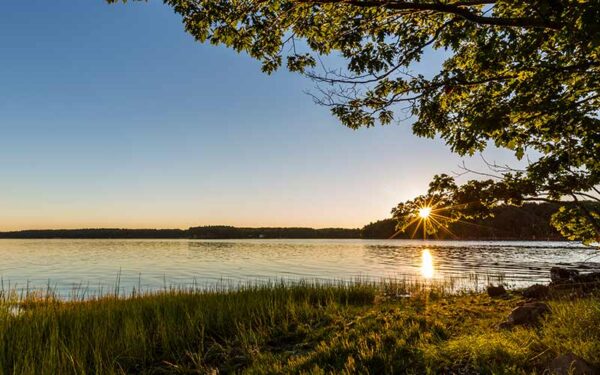In a decision with significant implications for open space planning and protection across Massachusetts, the Supreme Judicial Court has ruled that municipal parklands are protected by the state’s Constitution as long as the land has been dedicated and used as a public park.
The open space at issue was the Cross Street Playground in Westfield, which had been used as a public playground for more than 60 years. The City had more recently decided to build a school on the playground land, but neighbors objected to this use.
As we reported earlier this year, CLF filed a friend-of-the-court brief in support of protection for the playground under Article 97 of the Massachusetts Constitution, because open space like this is critically important to the health and well-being of our communities.
Expanded Constitutional Protections for Open Space
Article 97 gives the people of Massachusetts a constitutional right to clean air and clean water; to the natural, scenic, historic qualities of their environment; and to the conservation of the state’s natural resources. Land that is subject to Article 97 cannot be converted to another purpose without the approval of two-thirds of the Legislature. It’s how land was determined to be protected under Article 97 that was in dispute in the Westfield case.
Previous decisions by the Supreme Judicial Court had suggested that land could only be designated as protected by the Constitution through a deed or conservation restriction (neither of which the Cross Street Playground has). But with this decision, the Court has ruled that land can also qualify for Article 97 protection if (1) it is clearly and unequivocally dedicated as a public park and (2) the public uses the land as a park.
The Court reasoned that “[b]ecause the general public has an interest in parkland owned by a city or town, ultimate authority over a public park rests with the Legislature, not with the municipality.”
Protection for the Westfield Playground
In Westfield, the City had accepted federal funds to rehabilitate the Cross Street Playground on the condition that it surrender all ability to subsequently convert the playground to other uses. This, the Court determined, meant that the playground had indeed been clearly dedicated as a public park. And because the playground had been used as a park for more than 60 years, the Court held that the second part of the test for Article 97 protection had also been satisfied.
As a result, the playground is Article 97 land, and the City must obtain a two-thirds vote from the Legislature before it can divert the land for construction of a school.
What This Means for Open Space in Other Cities & Towns
The implications of this decision reach far beyond Westfield. Any municipal playground, parkland, or other open space that is not subject to a deed or recorded conservation restriction, but has been clearly dedicated and used a public space, may now qualify for the constitutional protections afforded by Article 97. Further, if a city or town has open space that is not subject to a deeded restriction, then it can obtain constitutional protection for this land by clearly dedicating and using it as a public space.
This landmark decision greatly expands the constitutional protections for parks and other public open space in Massachusetts. These spaces are not only key natural resources – they also have significant public health, economic, and ecological value because they provide recreational opportunities, drinking water protection, flood control and protection, and climate change mitigation. We’re pleased that Westfield kids get to keep a playground – and that other open space across the state now has this additional level of protection.



